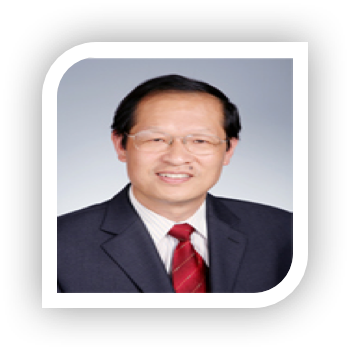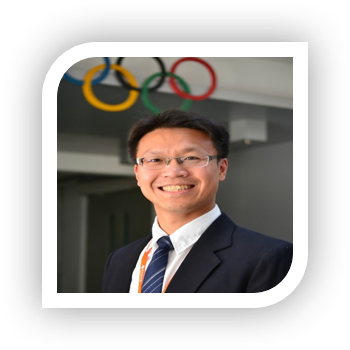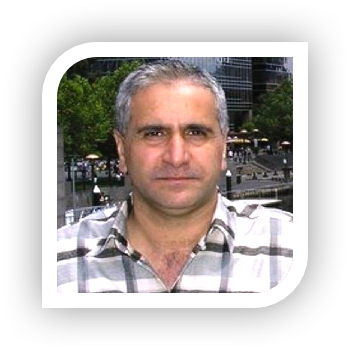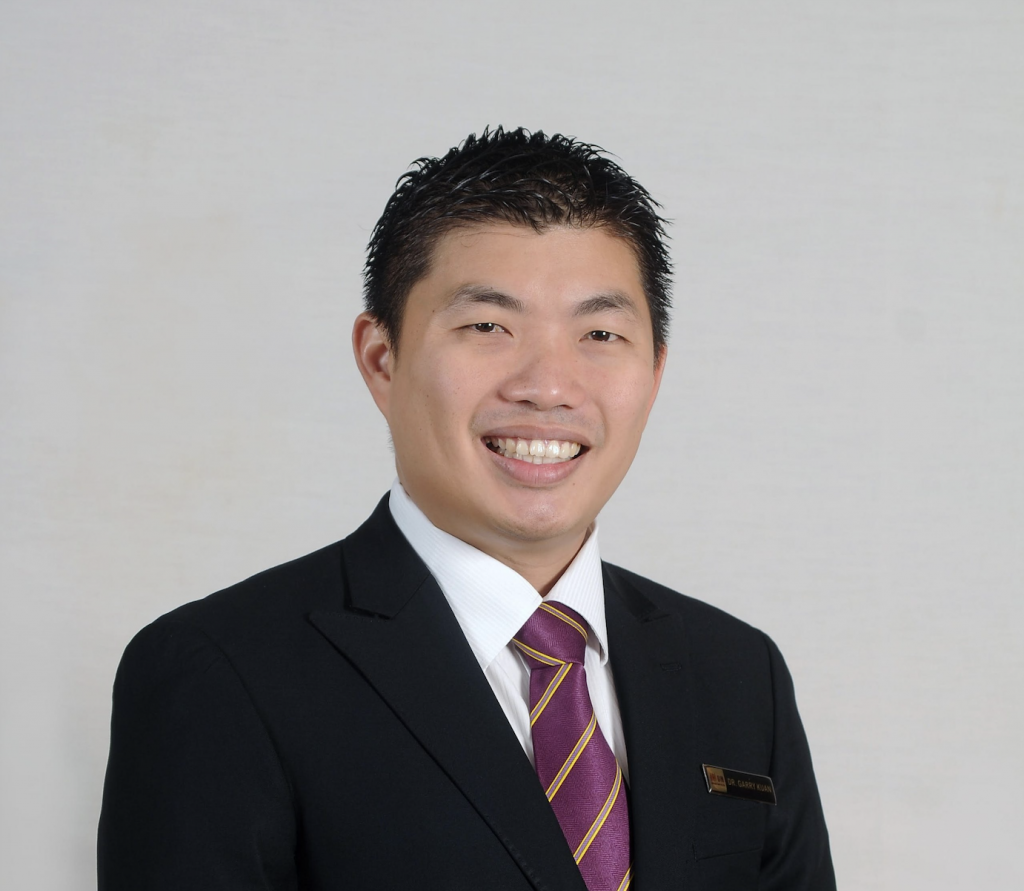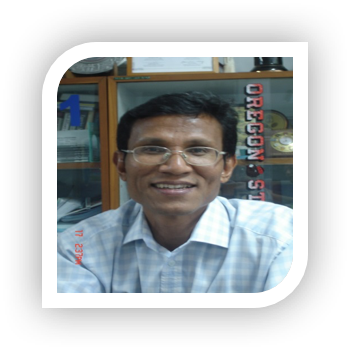About Us
Our Mission
Our mission is to facilitate the development of sport and exercise psychology throughout the Asian South-Pacific region, which includes the whole of Asia, Australasia, and the South-Pacific Islands.
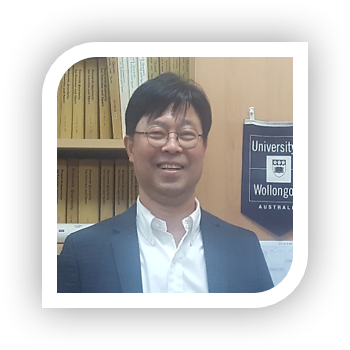
PRESIDENT'S CORNER
Prof YoungHo Kim
On the behalf of the member of the Asian-South Pacific Association of Sport Psychology (ASPASP), I sincerely welcome your visit to the website of ASPASP. ASPASP was established in Singapore in 1989, during the 7th World Congress of Sport Psychology. Since its inception, ASPASP has grown steadily, as we have encouraged the development of sport and exercise psychology in many countries within our region. ASPASP now has representation from Australia, China, Fiji, Hong Kong, India, Indonesia, Iran, Iraq, Israel, Japan, Korea, Kuwait, Macau, Malaysia, Mongolia, Nepal, New Zealand, Philippines, Qatar, Saudi Arabia, Singapore, Sri Lanka, Taiwan, Thailand, and Viet Nam.
As ASPASP is affiliated to the International Society of Sport Psychology (ISSP), the truly international flavor of the ASPASP has held eight international congresses, in Melbourne, Australia (1991), Hong Kong (1995), Wuhan, China (1999), Seoul, Korea (2003), Bangkok, Thailand (2007), Taipei, Taiwan (2011), Tokyo, Japan (2014), and Daegu, Korea (2018).
The ASPASP is the only society which was conceived largely to grow the domain of sport and exercise psychology in our region while creating partnerships and a free exchange of knowledge among scholars from the professional community. ASPASP has traditionally focused on research pertaining to improving athletes’ performance with an emphasis on sport psychology and motor control and learning. Since the mid-1990s, however, as the importance of health and wellness has steadily increased in our region, exercise psychology has been paid great attention as a prospective academic discipline.
The ASPASP is currently at a critical turning point with various global demand and challenges, though ASPASP has consistently contributed to achieve the possible outreach and the advancement of sport and exercise psychology across the Asian and South Pacific countries as its imperative. If changes in the external context require an evolution of the system, we must actively respond to the call, rather than try to avoid it. The ASPASP is not afraid of changes. In order to leap forward via change and innovations, all members must be willing to endure potential discomfort and inconveniences and project the fruits of our endeavour into the future.
Thank you.
Our Team
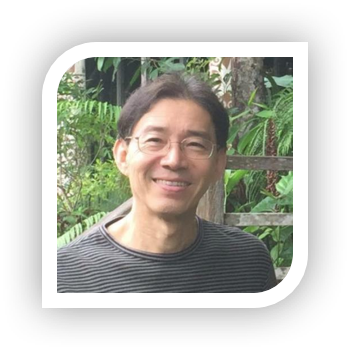
Prof Frank Lu
Taiwan

Prof Kaori Araki
Japan
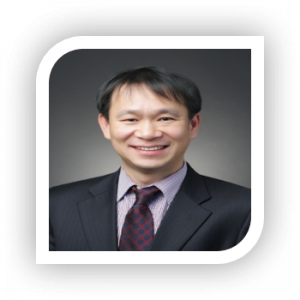
Prof Ji-Hang Lee
South Korea
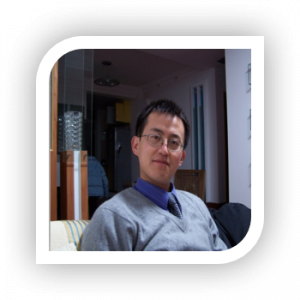
Prof Zhijian Huang
China
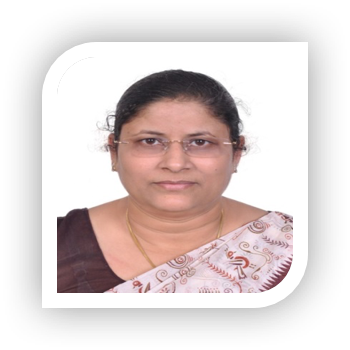
Prof Jayashree Acharya
India
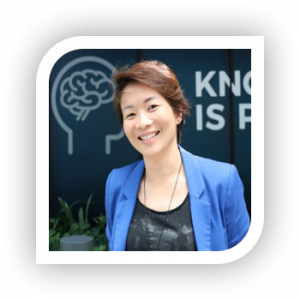
Dr Emily Ortega
Singapore
Managing Council of ASPASP (2018-2022)
President: Youngho Kim
Past-President: Liwei Zhang
Vice President (Programs): Frank Lu
Vice President (Publications): Kaori Araki
Vice President (Membership): Naruepon Vongjaturapat
Secretary General: Garry Kuan
Treasurer: Maria Luisa Guinto
MC Members:
- Jihang Lee
- Yu-Kai Chang
- Nadhim Al-Wattar
- Zhijian Huang
- Emily Ortega
- Jayashree Acharya
- Dev Roychowdhury
Managing Council of ASPASP (2014-2018)
President: Liwei Zhang
Past-President: Peter Terry
Vice President (Programs): Frank Lu
Vice President (Publications): Peter Terry
Vice President (Membership): Naruepon Vongjaturapat
Secretary General: Youngho Kim
Treasurer: Garry Kuan
MC Members:
- Dilip Dureha
- Suyen Liu
- Hirohisha Isogai
- Yongchul Chung
- Zhijian Huang
- Emily Ortega
- Maria Luisa Guinto
Past Presidents
- Liwei Zhang (2014 – 2018)
- Peter Terry (2011 – 2014)
- Tony Morris (1999 – 2011)
- Atsushi Fujita (1989 – 1999)
More about our team
See what our team has been up to!
PROF YOUNGHO KIM
Department of Sport Science, Seoul National University of Science and Technology
Seoul, South Korea
Dr. Youngho Kim is a professor at the Department of Sport Science in Seoul National University of Science and Technology. He received his PhD from the University of Wollongong, Australia in 1998, in an area of health and exercise psychology. Dr. Kim has currently served for the President of the Asian-South Pacific Association of Sport Psychology (ASPASP), the Vice-President of the International Society of Sport Psychology (ISSP), a section editor (Exercise and Health: Social Aspects and Interventions) of International Journal of Sport and Exercise Psychology (IJSEP), an associate editor (Exercise Psychology) of Asian Journal of Sport and Exercise Psychology (AJSEP), and a Vice President of Korea Society of Sport Psychology. His research interests include psychosocial correlates of physical activity in various settings, and he is currently focusing on physical activity and its related psychosocial constructs based on psychosocial theories. He has published more than 200 peer-reviewed journal articles and made more than 180 presentations at international conferences. Outstandingly, Dr. Kim has won research grants from Korean government every year since 2003, and he is recently funded (USD 250,000) by National Research Foundation.
PROF LIWEI ZHANG
Beijing Sport University,
People's Republic of China
Research interests:
- self-concept
- self-control
- burnout
Latest (5) publications:
Lyu, W., & Zhang, L. (2020). Effect of unconscious goal priming on athletes’ self-confidence. Journal of Science in Sport and Exercise, https://doi.org/10.1007/s42978-020-00056-3.
Luo, X., Zhang, L. & Wang, J. (2017). The benefits of working memory capacity on attentional control under pressure. Frontier in Psychology, 8, 1105. doi: 10.3389/fpsyg.2017.01105.
Sun, G. X., Zhang, L., Vine, S. J., & Wilson, M. R. (2016). The quiet eye provides pre-planning and online control support for interceptive task performance. Journal of Sport & Exercise Psychology, 38, 458-469.
Zhang, L. (2005). Prediction of Chinese Life Satisfaction: Contribution of Collective Self-esteem. International Journal of Psychology, 40(3), 189-200.
Zhang, L., & Leung, J. P. (2002). Moderating effects of gender and age on relationship between self-esteem and life satisfaction in Mainland Chinese. International Journal of Psychology, 37(2), 83-91
- WeChat: 86-13681278048
PROF YU-KAI CHANG
Department of Physical Education, National Taiwan Normal University
Taipei, Taiwan, Republic of China
Dr. Yu-Kai Chang, Ph.D., is Research Chair Professor in National Taiwan Normal University, as well as Director of the “Physical Activity and Cognitive Neuroscience Laboratory”. Dr. Chang is currently President of Society for Sport and Exercise Psychology of Taiwan, Managing Council members of both the International Society of Sports Psychology (ISSP) and the Asian-South Pacific Association of Sport Psychology (ASPASP), and the mental consultant for the Chinese Professional Baseball League.
Dr. Chang’s research focuses on “Sports and Exercise Psychology”, especially concerning issues of “Exercise and Mental Health”, “Sports/Performance Psychology”, and “Mindfulness”, undertaken from a cognitive neuroscience perspective. To Date, Dr. Chang has published more than 200 domestic and international journal articles, including those featured in internationally renowned journals, such as Sport Medicine, Health Psychology, Medicine and Science in Sports and Exercise, NeuroImage, Journal of Sport and Exercise Psychology, Psychology for Sport and Exercise, and Psychophysiology. He has also written 10 chapters in international textbooks, and translated 4 international academic books. Dr. Chang has won numerous domestic and international academic awards. He was awarded the 2020 HHS Distinguished Alumni Award from the University of North Carolina at Greensboro, the Outstanding Research Award of the Taiwan Ministry of Science and Technology in 2019; the Young Scholars Award of the North American Society of Physical Activity and Sport Psychology in 2014, the Young Scholar Award of the ISSP in 2013, the Ta-You Wu Memorial Award of the National Science Council in 2012, the Chinese Young Scholar Award of the ISSP Chinese Section in 2012, the China Youth Salvation Youth Medal in 2011, and the Outstanding Doctoral Dissertation Award of UNCG in 2009.
Dr. Chang is currently Editor-in-Chief of the Quarterly of Chinese Physical Education (TSSCI index), Associate Editor of the Journal of Sport and Health Science (SSCI/SCI), Editor of the International Journal of Sport and Exercise Psychology (SSCI?Scopus), and a member of the Journal of Sport and Exercise Psychology (SSCI/SCI) and Psychological for Sport and Exercise (SCI/SSCI) editorial committee. Dr. Chang also specializes in Chinese martial arts (Bagua, Xingyi, Taiji, Shaolin) and has represented his arts in many domestic Taiwanese and international martial arts competitions. He is the founder of the Bagua Taiji Martial Art and Wellness Association in USA and serves as chief instructor.
Prof.Dr.Nadhim Shakir Al-Wattar
University of Mosul, Iraq
Iraq
Professor of sport psychology at the University of Mosul / Iraq and one of the leaders of sports and international projects at the University of Mosul, Iraq. He held several administrative positions at his university, he obtained six scholarships and fellowships from some International Universities, in the field of sport psychology from Victoria University in Australia ,Martin University Luther Halle in Germany and Ballarat University in Australia. He participated at more than 45 international and local international conferences as invited speaker and researcher. He contributed to editing a number of books published in Britain, USA and Germany, Professor Al-Wattar was elected a honored professor at the University of Mosul from 2002 -2005 and got many scientific prizes for his scientific efforts in Iraq, Al-Wattar ,published more than 125 research in the field of sports and psychological sciences and supervised more than 30 masters and doctoral students in Sport Science.He still member of the Editorial Board in a number of scientific and international journals and member of the Committee of Experts in Physical Education and Sports Science at the Ministry of Higher Education and Scientific Research.Iraq. Currently he is a member of the Managing Consul of the International Association for Sports Psychology for South Asia and the Pacific ASPASP and the International Council for Sports Science and Physical Education ICCSPE He also served as a member of the advisory board at the American Institute of Sports USA, representative of the University of Mosul in the program “New aspects for the development of higher education in Iraq in field of physical education and Sports Sciences “in cooperation with the German Academic Exchange Service (DAAD).
MARIA LUISA GUINTO, Ph.D., ISSP-R
University of the Philippines, Diliman
Philippines
Maria Luisa Guinto, Ph.D., ISSP-R, is an Associate Professor in the Department of Sports Science of the College of Human Kinetics, University of the Philippines, Diliman(UPD). She holds a Doctorate in Psychology from the Ateneo de Manila University (ADMU), where she served as a faculty member of the Department of Psychology. In 2015, she moved to the main campus of the University of the Philippines in Diliman, where she now teaches graduate courses in Sport Psychology, Qualitative Methodologies in Human Movement Science, Psychology of Coaching, Counseling in Sport and Exercise, and Group Process in Sport and Exercise. She also served as the Research Director of the college from 2015-2022. A recipient of the 2019-2021 One UP Faculty Award for Outstanding Teaching and Public Service in Sport Psychology, she has also been awarded the International Publication Award in 2017, 2020, and 2022, and the 2021 UP Professorial Chair.
As one of the country’s forerunners of sport psychology, she is a founding member of the Association of Sport and Exercise Psychology of the Philippines (ASEPP). She is also the lead proponent for the recognition of Sport and Exercise Psychology as a Special Interest Group (SEP–SIG) of the Psychological Association of the Philippines (PAP), where she served as its first Chairperson. The PAP is the Accredited Integrated Professional Organization (AIPO) for registered psychometricians and psychologists of the country’s
Professional Regulation Commission (PRC). A licensed psychologist, she was elected in 2021 by the PAP General Assembly as Board Member and appointed as Co-Chair of the Certification for Specialization in Psychology until 2024. She was also elected as Secretary of the Executive Board of the International Association of Physical Education and Sport for Girls and Women (IAPESGW) from 2021 to 2025. She received the 2021 Margaret Talbot Award, a President’s Award for outstanding service to the IAPESGW.
Moreover, she is the first Filipino to be accepted into the International Society of Sport Psychology (ISSP) Registry of Practitioners with the vision of promoting professionalism in the discipline of sport psychology in the Philippines. Her research interests include women and sport, spirituality, mindfulness, and sport for development and peace. On the other hand, her practice involves consultation with athletes and coaches, engagement with organizations for excellence at the workplace, and the cultivation of resilience in communities in crisis through sports.
Assoc Prof. Dr Garry Kuan Pei Ern
Universiti Sains Malaysia
Malaysia
Dr Garry Kuan is an associate professor of the Exercise and Sports Science Programme, School of Health Sciences, Universiti Sains Malaysia. Presently, Garry is the Secretary-General of the Asian-South Pacific Association of Sport Psychology (ASPASP) and the Secretary-General of the Malaysian Sport Psychology Association (MASPA). In 2019, he was appointed as the chair of the international network of the Young Scientist Network – Academy of Science Malaysia (YSN-ASM) and the sport psychology panellist for the National Coaching Academy of Malaysia. Garry has published over 250 scholarly manuscripts, with over 130 high-impact ISI journals, and has served as an editor for numerous international journals. Besides, he had been invited to deliver over 10 keynotes and 50 invited presentations globally. Garry served as a contract sports psychologist with the Australian Institute of Sport, Team Great Britain and for several Malaysian Team. Garry is the recipient of the 2022 Malaysian Book of Record – Longest in Human Achievement, 2021 JCI Ten Outstanding Young Malaysian, 2021 International Society of Sport Psychology (ISSP) Developing Scholar Award, the 2021 Outstanding Academician of the Year by Asia Awards, the 2020 IFPEFSSA International Eminent Educator Award, the A-CIPA Young Researcher Award at the 27th International Congress of Applied Psychology, the International Scholars Award at the ICSEMIS pre-Olympic conference, and the Atsushi Fujita Research Scholarship at the 6th ASPASP conference. In his leadership role, Garry was awarded the Australian Leadership Award (2013) and the Victoria Ambassador Award – Young Person. During his social time, he plays the first violin professionally and teaches communities to play various musical instruments.
Dr. San-Fu Kao
National Tsing Hua University, Taiwan.
Taiwan
Dr. San-Fu Kao is a Professor of Sport and Exercise Psychology in the Department of Kinesiology at National Tsing Hua University, Taiwan. He is a sport psychology registry with the International Society of Sport Psychology (ISSP-R) and has been listed as a senior consultant for the Society for Sport and Exercise Psychology of Taiwan (SSEPT). Between 2015 and 2017, Sanfu served as president of SSEPT and actively updated the organization’s consulting programs. He was a visiting scholar at West Virginia University between 2014 and 2015. His research interests in sport psychology are coaching leadership and team dynamics. He has written over 60 articles and book chapters and given numerous presentations and keynote addresses. Sanfu has worked with and helped numerous coaches and athletes in Taiwan. He has experience working in coaching education and mentoring people to maintain active and healthy lifestyles.
Prof. Jolly Roy
Sri Ramachandra Institute of Higher Education and Research, Chennai, India
India
Current Position:
Prof. Jolly Roy is currently a professor in sport psychology and the principal of Faculty of Sports and Exercise Sciences at Sri Ramachandra Institute of Higher Education and Research, Chennai, India.
Prof. Jolly Roy is currently an ISSP registered practitioner.
Previous Positions:
- Prof. Jolly Roy has served as a member of ISSP managing council (2017-2021).
- Prof. Jolly Roy was a faculty engaged in education and research at the University in Malaysia;
- Prof. Jolly Roy served as a senior consultant (sport psychology) at National Sports Institute of Malaysia.
- Prof Jolly Roy served as a sport scientist in Sports Authority of India.
Education:
Prof. Jolly Roy has a PhD
- Master degree in psychology
- Master degree in psychiatric social work.
Sport Psychology Training:
- Research Institute for Olympic Sports in Finland (2003)
- Florida State University, USA (2015).
Awards:
- Recipient of ‘Young Scholar Development Award” at the10th World Congress of Sport Psychology held in Skiathos, Greece on June 2nd 2001.
- Recipient of “Fellow of 2008” of Sport Psychology Association of India(2008). (Awarded at India International congress at Gwalior Dec 2009).
International positions:
- Secretary/Treasurer of division 12 sport psychology, International Association of Applied Psychology (IAAP) (2010-2014).
- Secretary/Treasurer of division 12 sport psychology, International Association of Applied Psychology (IAAP)(2006-2010).
- Asian representative in Managing council of International Association of Applied Psychology (IAAP) Sport psychology division12 (2002-2006).
Publications:
She has to her credit: 141 publication which includes 1 book, 3 book chapters, 13 peer reviewed research articles, 11 general articles, 26 Invited presentations, 92 conference papers and workshops.
Elite athlete Preparation:
Prof. Jolly Roy to date has extended psychology support to elite athletes in India and Malaysia (e.g. In Malaysia: Athletics, Basketball, Netball, Weightlifting, Boxing, Archery ; In India: Hockey, Kabaddi, Badminton, Volleyball, Athletics etc)
Major assignments:
Prof. Roy was involved in :
- Preparing the London Olympic archery team of Malaysia,
- Served as the psychologist for the Indian contingent for Asian Games Busan,
- Served as a psychologist for Malaysian contingent for Equestrian Endurance World championships in Malaysia.
- Served as a psychologist for Malaysian Contingent for three South East Asian Games in Laos, Indonesia, and Singapore respectively.
Tawfeeq Albakry
College of Education
Saudi Arabia
A PhD in Sport Psychology from Exeter University, UK (2007), and Master’s degree in Sports Management from Old Dominion University, Norfolk, VA, USA (2002), made it somehow a path toward administration and leadership in my corrier when I was appointed to become the head of Physical Education Dept. at Umm AlQura University, Saudi Arabia, then a vice dean, and lately the Dean of College of Education. I also had a chance to be the coach of Saudi Universities National basketball team.
Professor John Wang
Nanyang Technological University
Singapore
Professor John Wang is the inaugural E. W. Barker Chair in Physical Education and Sports Science (PESS) by Nanyang Technological University. This endowed chair professorship is one of the most prestigious awards in physical education and sport in Singapore. It provides recognition to the research achievements of Professor John Wang in the fields of physical education and sports science.
Professor John Wang graduated from Loughborough University with a Ph.D. in Sport and Exercise Psychology, supported by an Overseas Graduate Scholarship from National Institute of Education (NIE) and an Overseas Research Students Award from Loughborough University in 2001. Professor John Wang is a Chartered Psychologist and an Associate Fellow of the British Psychological Society. He is registered with the Health Professions Council of the UK as a Sport and Exercise Psychologist. Professor John Wang was the former Dean of the Office of Graduate Studies and Professional Learning, Head of the Physical Education and Sports Science Academic Group, Programme Director of the Sport Science and Management Degree, and Associate Dean for Research Management and Programmes of the Office of Education Research, all within NIE. He was also a former President of the Singapore Physical Education Association from 2012 to 2016.
Professor John Wang has been involved in more than 50 research projects with a total grant amount of more than $5 million Singapore dollars. His research has resulted in many international and national collaborations, and a highly productive publication record with more than 200 refereed journal articles, books, and book chapters, in high-impact peer-reviewed journals in Education, Sport and Exercise Sciences, Educational Psychology, Health Psychology, Outdoor Education, and Physical Education. He has presented more than 100 conference paper presentations and made various keynote and invited speeches at international conferences. As part of his work on motivation, Professor John Wang leads a group of staff from NIE at the Motivation in Educational Research Lab (MERL). The aim of the MERL is to focus on specific motivational issues related to education and works on translating theories into knowledge for evidenced-based practice in education.
Yasuhisa Tachiya, Ph.D.
Japan Institute of Sports Sciences (JISS)
Japan
Japan Institute of Sports Sciences (JISS) that actively provides sport science based services to Japanese elite athletes was founded in 2001. Since the JISS was founded, I had been a reseacher of JISS for 9 years at there. And then I have been a head of the Sport Psychology Group at JISS since 2010. My research interests are understanding psycholgoical profile of elite athletes and enhancing their psychological skills by mental skills training. I am a certified senior Mental Training Consultant in Sports and the Qualification Committee Chairman of the Japanese Society of Sport Psychology(JSSP). I have a wealth of experience in providing psychological support for the Japanese elite athletes and teams in field, from Olympic sports (e.g., ski jumping men’s national team for Vancouver 2010, Sochi 2014, and PyeongChang 2018, and men’s handball national team for Tokyo 2020) to professional sports (e.g., baseball). Given that Paralympic sport moved under the Ministry of Education, Culture, Sports, Science and Technology from Ministry of Health, Labour and Welfare in 2014, the JISS became responsible for providing psychological supports and conducting research both in Olympic and Paralympic sports.
Prior to the Tokyo 2020, I worked on the preparation of athletes and teams in the “Home Game” context based on the evidence derived from their own research project called “Countermeasures Against Host Country Pressure at JISS for TOKYO 2020 Olympic and Paralympics.” During the Games, then, I led psychological supports at the High Performance Support Center as a head of mental performance consltant.
Associate Professor Jingdong Liu
Sun Yat-Sen University, China
China
I am Jingdong Liu, currently, an Associate Professor at the Department of Physical Education, Sun Yat-Sen University, China. I was with Sport Psychology Unit at the Hong Kong Sports Institute from 2005 to 2009. I obtained my Doctoral Degree (Ph.D.) in Sport Psychology at the Hong Kong Baptist University in 2012. After that, I worked at the same University as Postdoctal Fellow (2012-2014) and Research Assistant Professor (2015-2018). In June 2018, I joined Sun Yat-Sen University as an Associate Professor.
I have diverse research interests in the areas of sport, exercise, health and school psychology. My main research interest concerns the question like how social and psychological factors affect people’s behaviors and experiences in various settings, such as sport, exercise, school, and community. My research applies social cognitive and motivational theories to understand the antecedents and consequences of human behavior using both quantitative and qualitative approaches. Meanwhile, to solve the measurement issues in my research, I also developed my interest in the instrument development and validation.
I have been working with elite athletes who compete at both national and international levels as a Sport Psychology Counselor for about ten years and providing psychological services for athletes from various sports such as Fencing, Swimming, Taekwondo, Judo, Boxing and Tennis. I have been also working with elite athletes from various sports as a Career Development Counselor to help them well plan for their career development at different stages and prepare for their transition out of sport. I was the MC member and Treasurer of the Hong Kong Society of Sport and Exercise Psychology (HKSSEP) from 2010 to 2018. I worked with other HKSSEP MC members to promote the development of the sport and exercise psychology in Hong Kong community.
Dr Chin Ngien Siong
nstitute of Teacher Education Batu Lintang Campus, Malaysia
Malaysia
Chin Ngien Siong, PhD is a senior lecturer at the Department of Physical Education in the Institute of Teacher Education Batu Lintang Campus, Malaysia. Dr Chin has served as the Malaysian Representative for ASPASP, Committe Member of Asia Federation of Physical Education and Sport (AFFES) and Malaysian Delegate at World International Federation of Physical Education and Sport (FIEPS). He is also a Panel Member of the National Coaching Academy of Malaysia, Committee Member of Malaysian Sports Psychology Association, Vice President of Sarawak Sports Psychology Association and Advisor (Sports Psychology) of Sarawak Taekwondo Association (WTF). He is also an Editorial Board Member of Perceptual and Motor Skills Journal and Coaching Journal. He has published numerous publication in sports psychology, physical education and health.

